
Athens: The Cradle of Western Civilization
Athens, the capital of Greece, is a city where ancient history and modern life blend seamlessly. Known as the cradle of Western civilization and the birthplace of democracy, Athens is a treasure trove of ancient landmarks, vibrant neighborhoods, and rich cultural heritage. Visitors can walk in the footsteps of philosophers like Socrates and Plato while exploring the ruins of ancient temples and theaters. One of the city's highlights is the Acropolis, a UNESCO World Heritage site perched high on a rocky hill. It houses the Parthenon, an enduring symbol of ancient Greece. From the Acropolis, you can enjoy panoramic views of the city and its surroundings. Nearby, the Acropolis Museum offers a closer look at the artifacts and sculptures that once adorned these historic sites. Athens is also known for its bustling markets, lively cafes, and delicious cuisine. The Plaka neighborhood, with its narrow streets and charming shops, is a must-visit for anyone looking to experience the local culture. Don't miss the Monastiraki Flea Market, where you can find everything from antiques to handmade jewelry. For a taste of modern Athens, head to the district of Kolonaki, known for its upscale boutiques and galleries. The National Archaeological Museum, one of the most important museums in the world, offers a comprehensive look at Greek history from prehistoric times to late antiquity. In the evening, take a stroll along the Dionysiou Areopagitou pedestrian street, which offers stunning views of the illuminated Acropolis.
Local tips in Athens
- Visit the Acropolis early in the morning or late in the afternoon to avoid the crowds and heat.
- Wear comfortable shoes, as the city is best explored on foot, and many historic sites have uneven terrain.
- Try the local cuisine, including souvlaki, moussaka, and baklava, at a traditional taverna.
- Use the metro to get around the city efficiently and avoid traffic.
- Take a day trip to nearby attractions like the Temple of Poseidon at Cape Sounion or the ancient theater of Epidaurus.
- Stay hydrated and carry a bottle of water, especially during the hot summer months.
Neighbourhoods in Athens
Athens: The Cradle of Western Civilization
Athens, the capital of Greece, is a city where ancient history and modern life blend seamlessly. Known as the cradle of Western civilization and the birthplace of democracy, Athens is a treasure trove of ancient landmarks, vibrant neighborhoods, and rich cultural heritage. Visitors can walk in the footsteps of philosophers like Socrates and Plato while exploring the ruins of ancient temples and theaters. One of the city's highlights is the Acropolis, a UNESCO World Heritage site perched high on a rocky hill. It houses the Parthenon, an enduring symbol of ancient Greece. From the Acropolis, you can enjoy panoramic views of the city and its surroundings. Nearby, the Acropolis Museum offers a closer look at the artifacts and sculptures that once adorned these historic sites. Athens is also known for its bustling markets, lively cafes, and delicious cuisine. The Plaka neighborhood, with its narrow streets and charming shops, is a must-visit for anyone looking to experience the local culture. Don't miss the Monastiraki Flea Market, where you can find everything from antiques to handmade jewelry. For a taste of modern Athens, head to the district of Kolonaki, known for its upscale boutiques and galleries. The National Archaeological Museum, one of the most important museums in the world, offers a comprehensive look at Greek history from prehistoric times to late antiquity. In the evening, take a stroll along the Dionysiou Areopagitou pedestrian street, which offers stunning views of the illuminated Acropolis.
When is the best time to go to Athens?
Iconic landmarks you can’t miss
Acropolis of Athens
Explore the Acropolis of Athens, an ancient citadel and UNESCO World Heritage site, home to the Parthenon and a symbol of classical Greece.
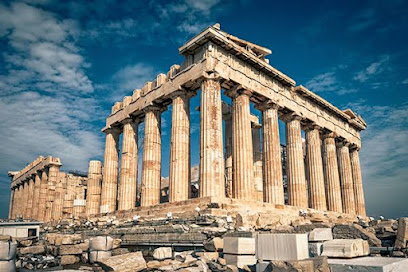
Parthenon
Explore the Parthenon, an enduring symbol of ancient Greece and Athenian democracy, standing proudly atop the Acropolis of Athens.
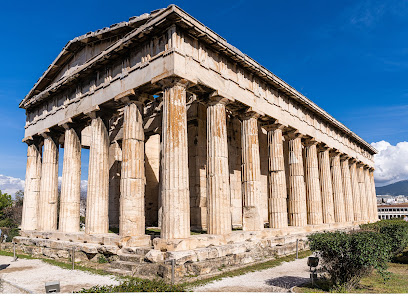
Acropolis Museum
Discover ancient Athenian life through artifacts & sculptures in a modern museum with stunning Acropolis views. A journey through history!
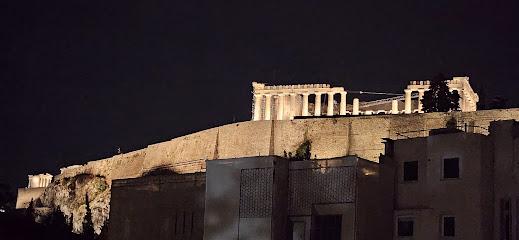
Athens National Garden
Discover a royal legacy in Athens' National Garden: a serene escape with diverse flora, historical charm, and tranquil pathways.
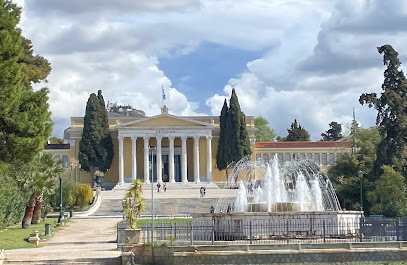
Ancient Agora of Athens
Discover the Ancient Agora of Athens, the birthplace of democracy and the vibrant heart of ancient Athenian life, a must-see historical landmark.
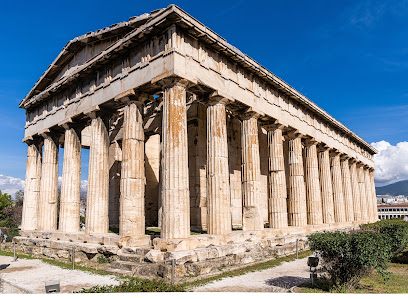
National Archaeological Museum
Discover the treasures of ancient Greece at the National Archaeological Museum, home to the world's richest collection of Greek antiquities.
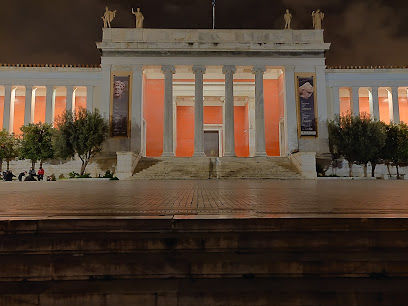
Temple of Olympian Zeus
Explore the ruins of the Temple of Olympian Zeus in Athens, a testament to ancient Greece's grandeur and Roman Emperor Hadrian's vision.
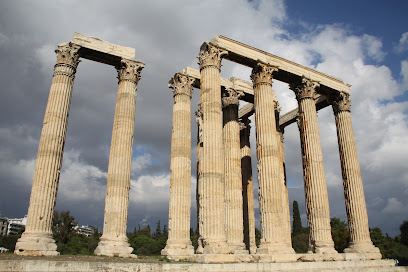
Philopappos Hill
Discover breathtaking panoramic views of Athens and the Acropolis from this historic hilltop park, crowned by the Philopappos Monument.
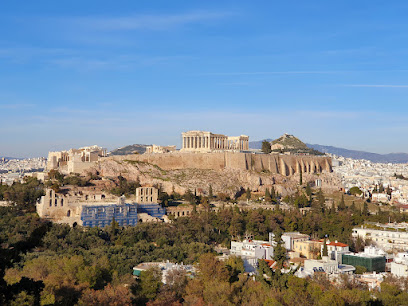
Monastiraki Square
Experience the vibrant heart of Athens at Monastiraki Square: a blend of history, culture, and bustling markets in the city's center.
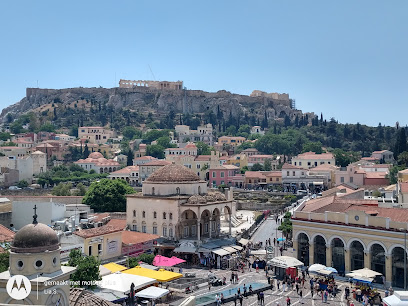
Roman Forum of Athens (Roman Agora)
Step back in time at the Roman Forum of Athens, where ancient history comes to life amidst remarkable ruins and architectural wonders.
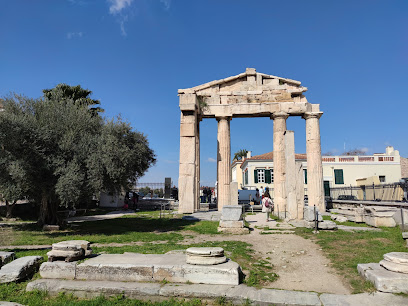
Temple of Hephaestus
Explore the Temple of Hephaestus, a remarkably preserved ancient Greek temple dedicated to the gods of craftsmanship, in the heart of Athens.
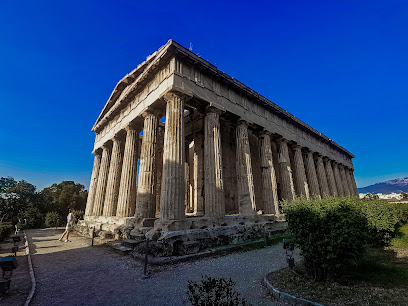
Metropolitan Church of the Annunciation to the Virgin Mary
Discover Athens' Metropolitan Church, a blend of Byzantine & Neoclassical architecture, rich history, and spiritual significance in the heart of the city.
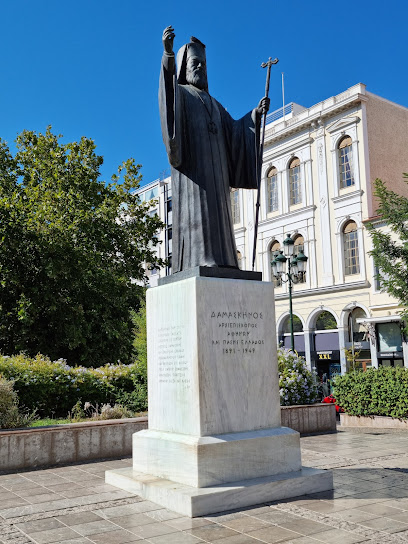
Theatre of Dionysus
Explore the ancient Theatre of Dionysus in Athens, the world's first theatre and the birthplace of Western drama, where legendary plays were first performed.
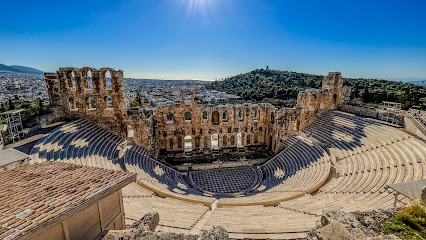
Kerameikos Archaeological Site
Discover Kerameikos, Athens's ancient cemetery and potters' quarter, a journey through the city's history and burial traditions.
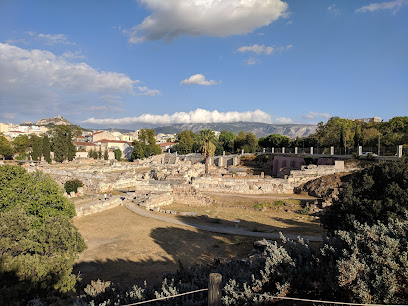
Acropolis
Explore the Acropolis, the iconic symbol of ancient Greece, and discover the Parthenon and other architectural marvels in the heart of Athens.
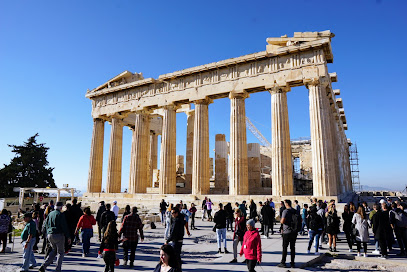
Unmissable attractions to see
Acropolis of Athens
Explore the Acropolis of Athens, a stunning historical landmark that showcases the brilliance of ancient Greek architecture and culture.
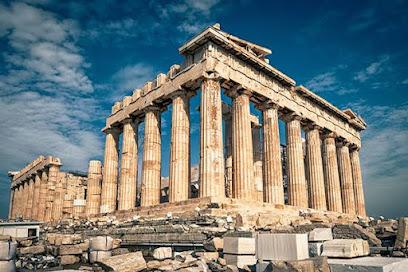
Parthenon
Discover the Parthenon, an architectural marvel and the heart of ancient Athens, steeped in history and breathtaking beauty.
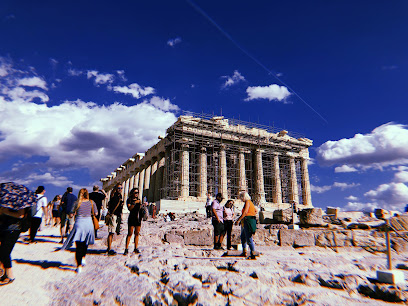
Acropolis Museum
Discover the Acropolis Museum, where ancient Greek history and modern architecture converge in the heart of Athens.
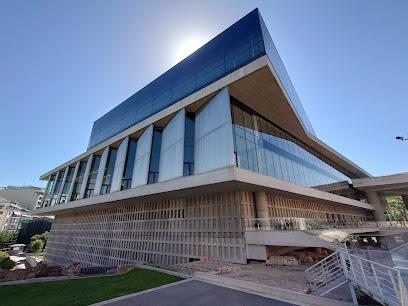
Stavros Niarchos Foundation Cultural Center
Explore the Stavros Niarchos Foundation Cultural Center, a cultural landmark in Athens featuring art, performances, gardens, and stunning city views.
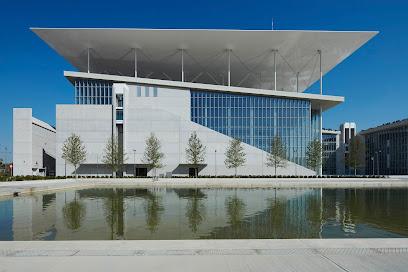
Panathenaic Stadium
Explore the rich history of the Panathenaic Stadium in Athens, a stunning venue that showcases the birthplace of the Olympic Games and ancient Greek culture.
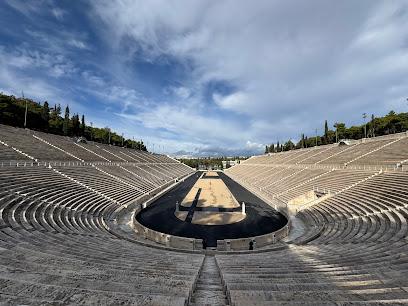
Athens National Garden
Discover tranquility in the heart of Athens at the National Garden, a historical oasis filled with lush greenery and serene pathways.
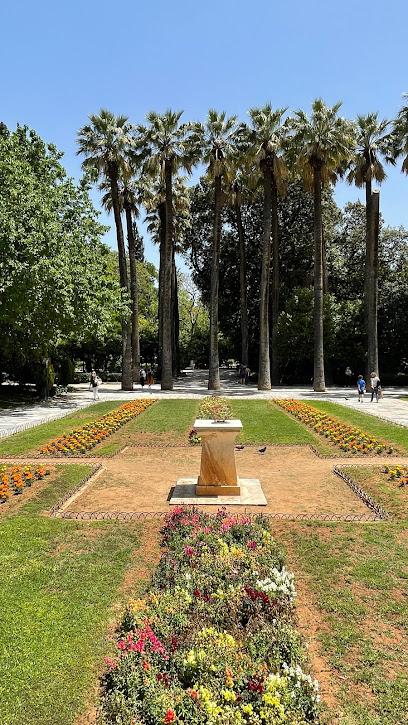
Ancient Agora of Athens
Discover the Ancient Agora of Athens, a historical landmark where democracy and philosophy flourished in the heart of Greece.

National Archaeological Museum
Explore Greece's ancient history at the National Archaeological Museum, home to an unparalleled collection of artifacts and exhibits.

Temple of Olympian Zeus
Explore the Temple of Olympian Zeus, a stunning ancient landmark in Athens showcasing the grandeur of Greek architecture and history.
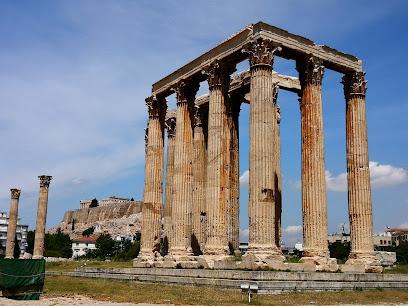
Flisvos Marina
Explore Flisvos Marina in Athens for breathtaking views, luxury yachts, and a vibrant dining scene along the beautiful Aegean coast.

Lycabettus Hill
Discover breathtaking views from Lycabettus Hill, Athens' highest point, where history meets nature and stunning panoramas await.
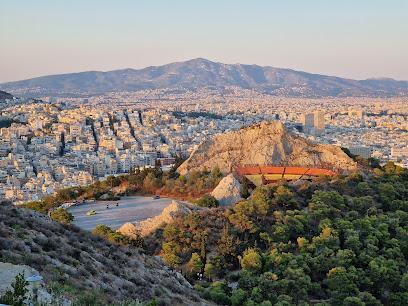
Philopappos Hill
Experience the breathtaking views and rich history at Philopappos Hill, a tranquil park in Athens perfect for all travelers.
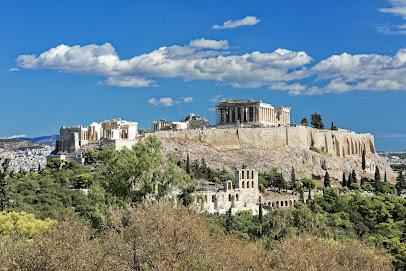
Monastiraki Square
Discover the lively atmosphere of Monastiraki Square, Athens – a blend of history, culture, and shopping in the heart of Greece.
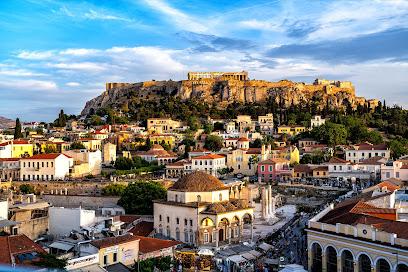
Athens Olympic Sports Center Spyros Louis
Explore the Athens Olympic Sports Center, a historic venue showcasing world-class sports and Olympic heritage in the heart of Greece.
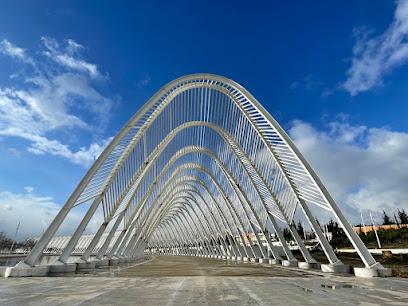
Archaeological Site of Sounion
Explore the stunning Archaeological Site of Sounion, where ancient ruins meet breathtaking Aegean Sea views in a serene setting.
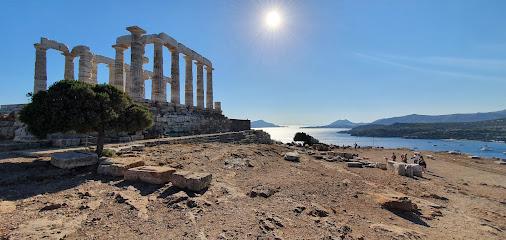
Essential places to dine
Karamanlidika
Explore the heart of Greek cuisine at Karamanlidika - where tradition meets taste in every bite.
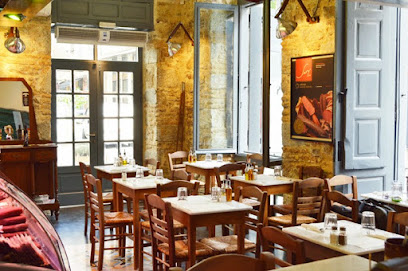
Maiandros Restaurant
Experience authentic Greek flavors in a family-friendly atmosphere at Maiandros Restaurant in Athens.
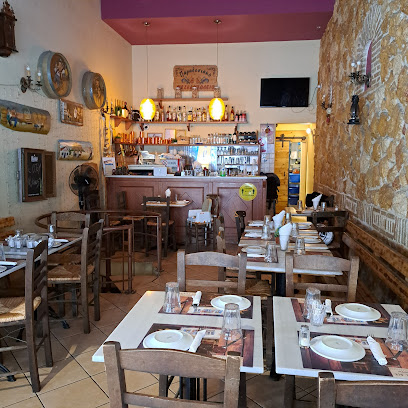
Tavern Klimataria
Delve into authentic Greek flavors at Tavern Klimataria—where every meal is paired with vibrant live music and warm hospitality.
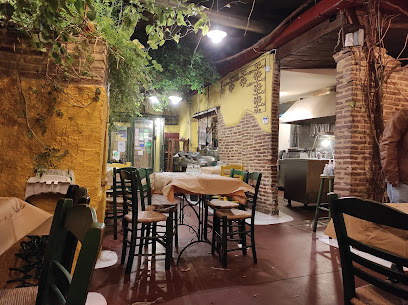
Efcharis restaurant
Experience authentic Greek cuisine at Efcharis Restaurant in Athens – where tradition meets modernity in every delicious bite.
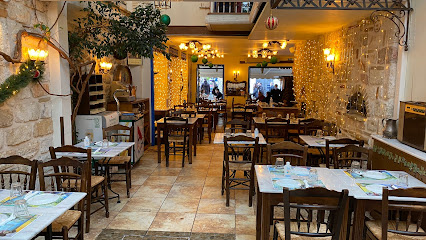
Feyrouz
Experience authentic Middle Eastern cuisine at Feyrouz in Athens – where every dish tells a story.
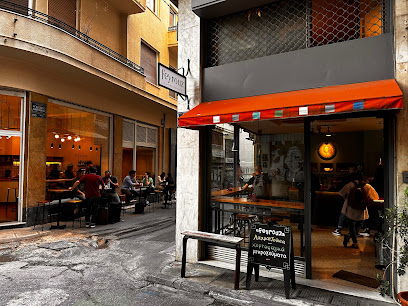
Aspro Alogo (i.e. White Horse) Traditional Greek Food
Experience authentic Greek cuisine at Aspro Alogo in Athens – where tradition meets flavor in every dish.
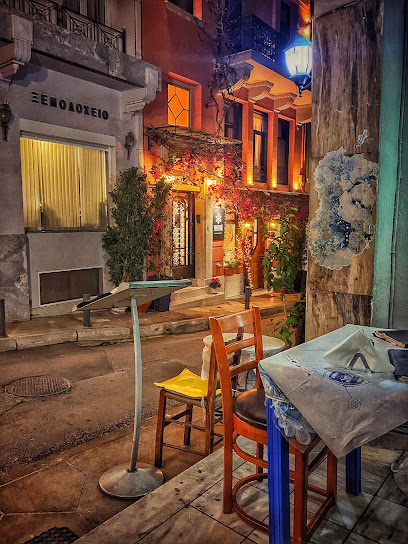
LIONDI Traditional Greek Restaurant
Experience authentic Greek cuisine at LIONDI Traditional Greek Restaurant in Athens, where every dish tells a story of tradition and flavor.
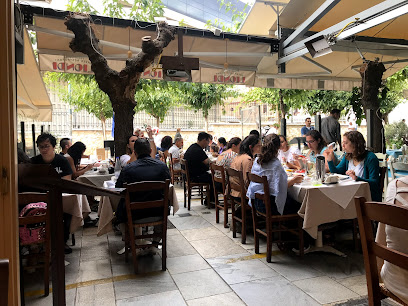
Nolan
Discover Nolan in Athens: Where Greek Tradition Meets Global Flavors in an Exquisite Dining Experience.
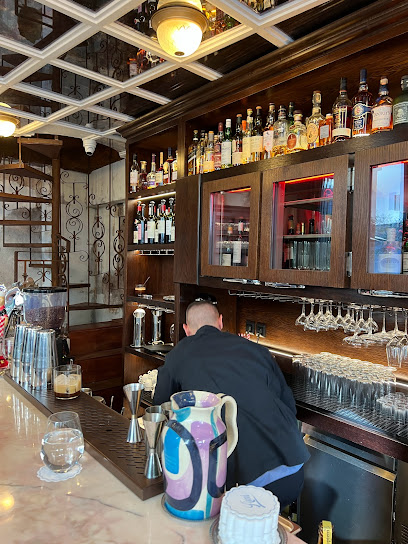
OROSCOPO restaurant
Discover Oroscopio: A top-rated Mediterranean restaurant in Athens serving exquisite Greek and Italian dishes with unparalleled hospitality.
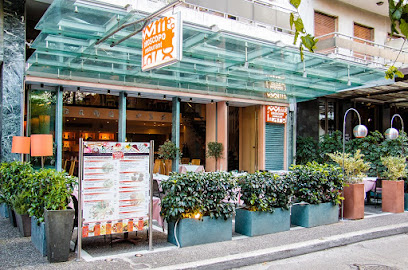
Restaurant Scholarhio
Experience authentic Greek cuisine at Restaurant Scholarhio in Athens - where tradition meets flavor in every dish.
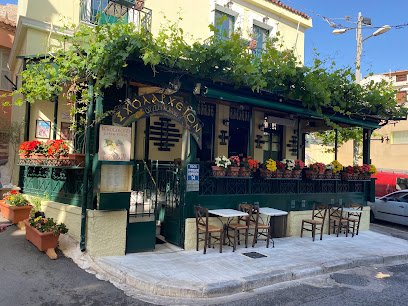
MIRONI Greek Restaurant
Savor the essence of Greece at MIRONI Restaurant with authentic dishes crafted from fresh local ingredients.
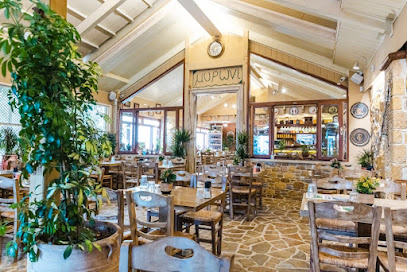
Arcadia Restaurant
Experience the essence of Greek dining at Arcadia Restaurant in Athens - where tradition meets flavor in every dish.
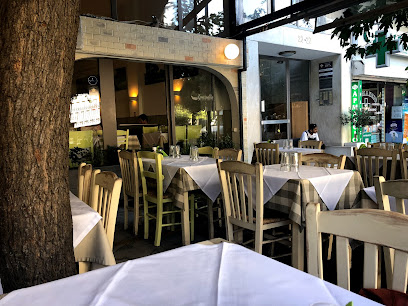
Kuzina
Discover authentic Greek flavors at Kuzina in Athens – where tradition meets modern culinary artistry amidst stunning views.
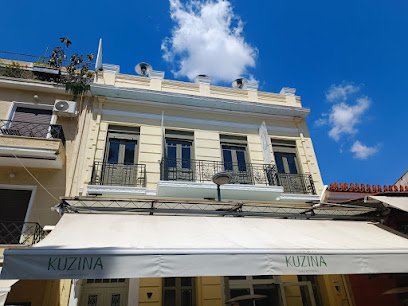
Dopios
Discover authentic Greek flavors at Dopios - where tradition meets modern dining in the heart of Athens.
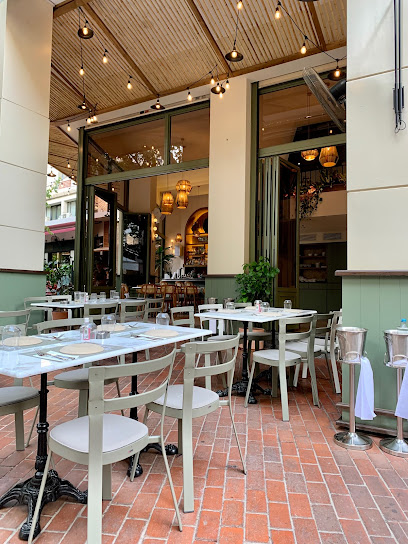
Ella Greek Cooking
Experience authentic Greek cuisine at Ella Greek Cooking in Athens – where every dish tells a story.
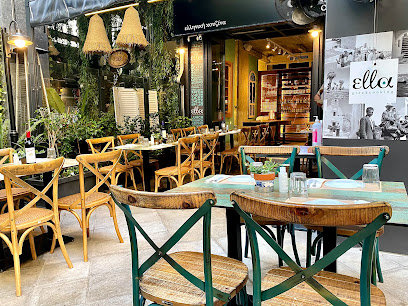
Markets, malls and hidden boutiques
Shopping Street
Ermou Street in Athens: A vibrant shopping paradise blending local charm with international flair, perfect for every traveler.
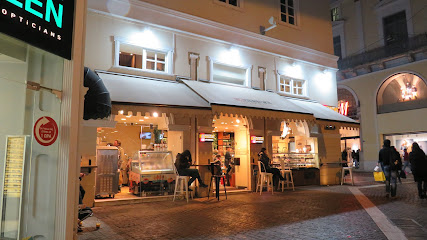
Kilo-Shop
Explore Kilo-Shop in Athens for a treasure trove of vintage clothing and sustainable fashion, perfect for unique finds and stylish outfits.

Forget Me Not
Discover unique Greek souvenirs at Forget Me Not, a charming store in Athens, perfect for finding authentic gifts and handmade crafts.
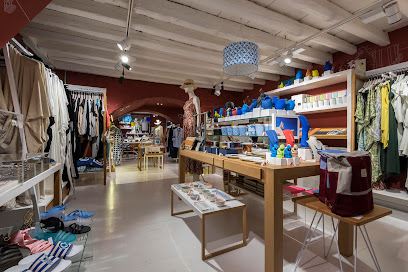
Olive Tree Store
Explore the Olive Tree Store in Athens for unique handcrafted gifts and authentic Greek souvenirs that capture the essence of Greek culture.
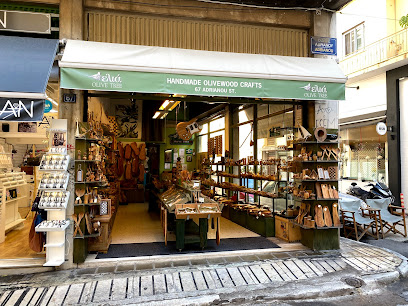
Reset Thrift Shop
Explore vintage treasures at Reset Thrift Shop in Athens, where unique fashion finds and sustainable shopping await every traveler.
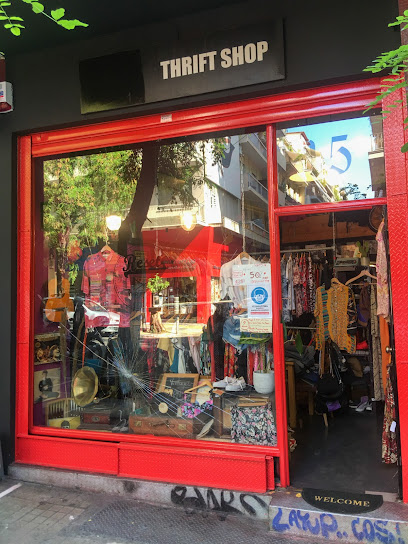
Modernon Retrosexual Vintage Shop
Explore the vibrant world of retro design at Modernon Retrosexual Vintage Shop, where every item tells a story.
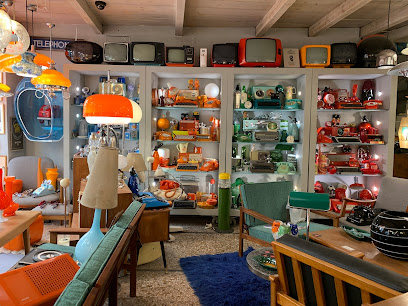
Treasure House - Vintage, Handmade & Upcycled Clothing
Explore Treasure House in Athens for unique vintage, handmade, and upcycled clothing that captures the essence of creativity and sustainability.

iPolis Shop Greek Souvenir
Explore iPolis Shop for a unique selection of authentic Greek souvenirs, perfumes, and clothing, perfect for capturing the essence of Greece.
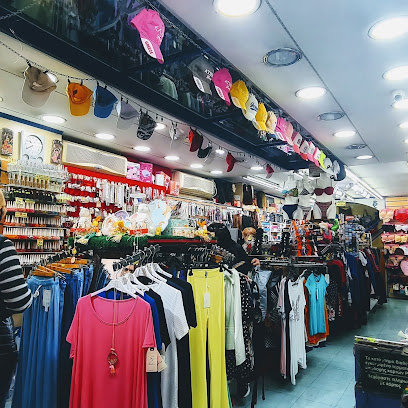
Hercules Shop
Discover unique souvenirs and traditional crafts at Hercules Shop in Athens, a treasure trove for tourists seeking authentic memorabilia.
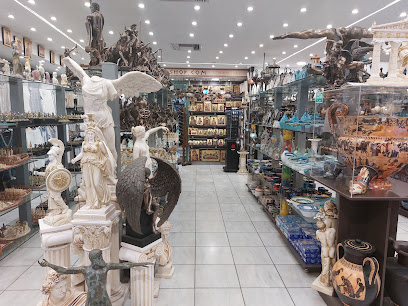
ΑNAMESA CONCEPT STORE
Explore ANAMESA Concept Store in Athens for a unique blend of fashion, children's items, and a cozy coffee experience.

Κουμπάκι
Explore Κουμπάκι, the enchanting gift shop in Athens, offering unique local treasures and artisanal souvenirs.
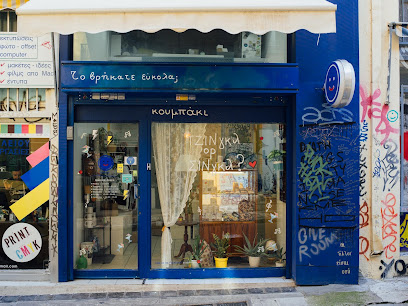
Paris Valtadoros (Athens Boutique)
Explore Paris Valtadoros in Athens for stylish clothing and elegant accessories that capture the essence of contemporary Greek fashion.
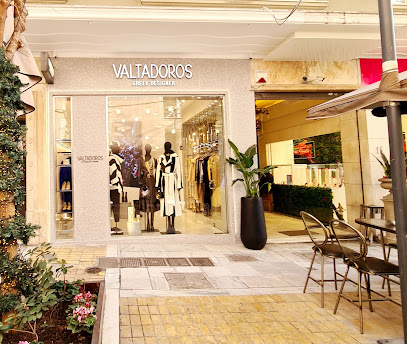
Benaki Museum Shop | Museum of Greek Culture
Explore the Benaki Museum Shop for unique gifts and local crafts celebrating the richness of Greek culture in Athens.
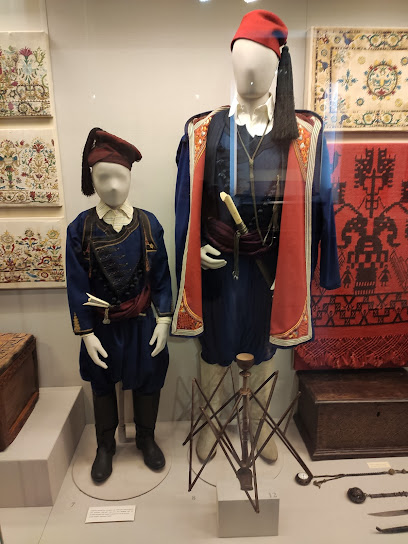
Thiki Greece
Discover authentic handcrafted souvenirs at Thiki Greece, where every item is a piece of Greek culture and heritage.
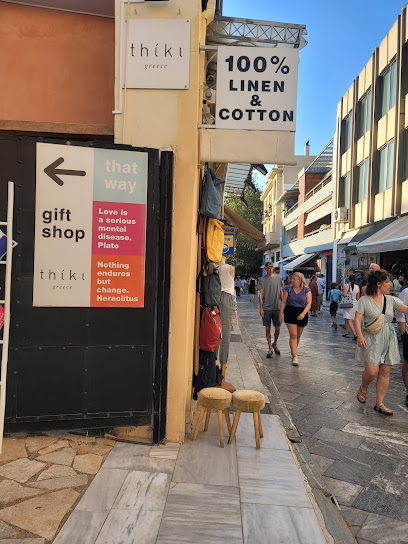
The Concept Store Art & Industry
Explore The Concept Store Art & Industry in Athens for unique vintage clothing and a taste of local culture.

Essential bars & hidden hideouts
Couleur Locale
Discover the charm of Couleur Locale, a vibrant bar and bistro in Athens offering Mediterranean delights and stunning views of the Acropolis.
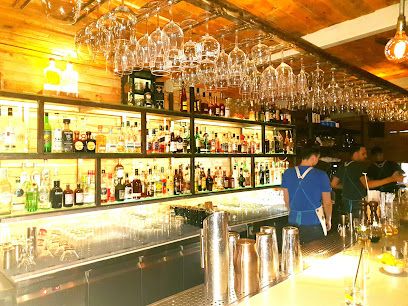
360 Cocktail Bar
Discover the vibrant nightlife of Athens at 360 Cocktail Bar, where stunning views and creative cocktails come together for an unforgettable experience.
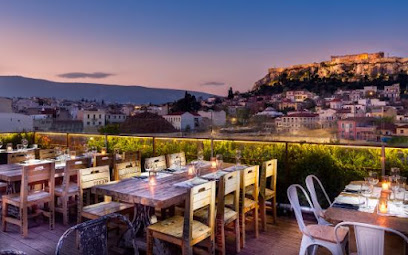
Upupa Epops
Discover the vibrant cocktail culture of Athens at Upupa Epops, where unique mixes and a lively ambiance await you.
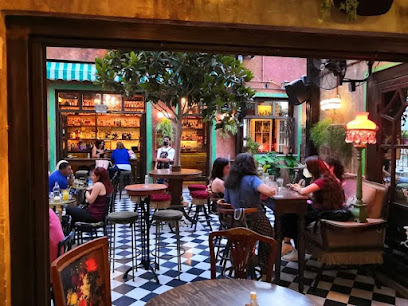
The Clumsies
Discover The Clumsies, Athens' premier cocktail bar, where innovative drinks meet a vibrant atmosphere in the heart of the city.

Drunk Sinatra
Discover Drunk Sinatra, a vibrant bar in Athens offering unique cocktails, lively music, and an unforgettable nightlife experience.

Juan Rodriguez Bar •Compañia de Bebida
Juan Rodriguez Bar: A Cocktail Haven and Thriving Club Experience in the Heart of Athens, Perfect for Nightlife Enthusiasts.
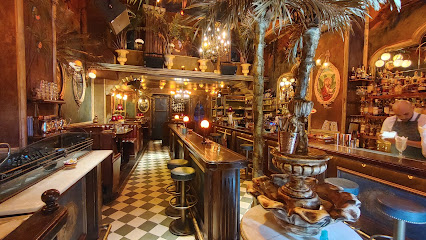
Baba au Rum
Experience the vibrant nightlife of Athens at Baba au Rum, renowned for its exquisite cocktails and lively atmosphere that promises unforgettable evenings.
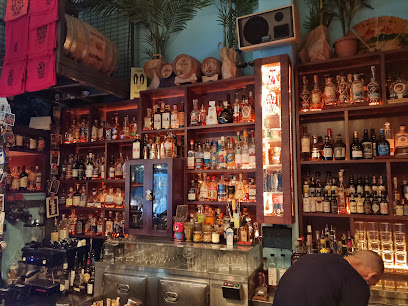
Brettos bar
Experience authentic Greek spirits at Brettos Bar, a historic gem in the vibrant Plaka district of Athens, where tradition meets delightful flavors.
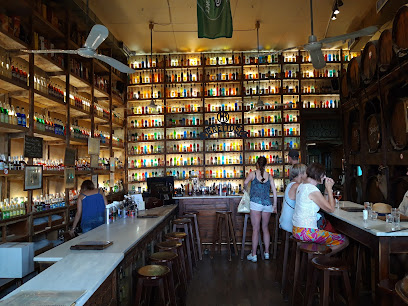
The 7 Jokers Coffee & Cocktail Bar
Experience the vibrant nightlife of Athens at The 7 Jokers Coffee & Cocktail Bar, where cocktails and coffee meet in a stylish atmosphere.
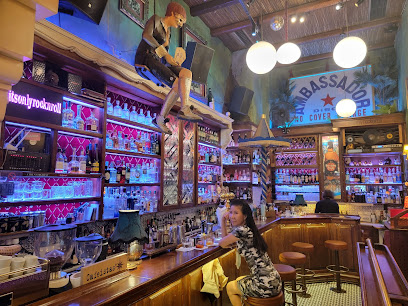
Ipitou The Bar
Discover the lively atmosphere of Ipitou The Bar, where exquisite cocktails, local beers, and aromatic coffee unite in the heart of Athens.
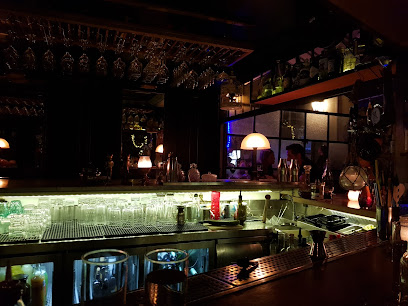
42 Barstronomy Athens
Discover the perfect blend of innovative cocktails and exquisite cuisine at 42 Barstronomy, a must-visit destination in Athens.
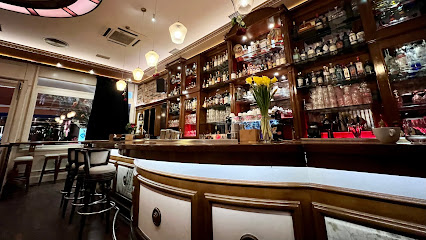
MONK Wine Bar
Experience the vibrant atmosphere and exquisite wine selection at MONK Wine Bar, a hidden gem in the heart of Athens.
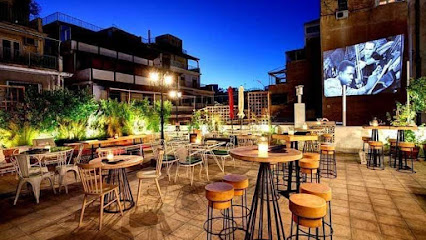
THE BAR IN FRONT OF THE BAR
Experience the vibrant nightlife of Athens at The Bar in Front of the Bar, where great drinks and a lively atmosphere await you.

Barreldier
Experience the vibrant nightlife of Athens at Barreldier, where creative cocktails meet a lively atmosphere in the heart of the city.
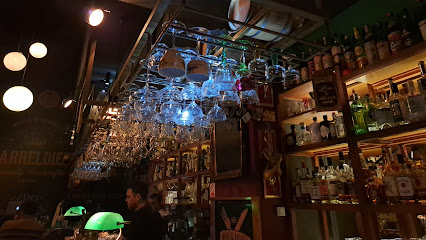
Thesis 7
Discover the artistic charm of Thesis 7, a vibrant bar in Athens offering cocktails, live music, and an inspiring atmosphere for an unforgettable night out.
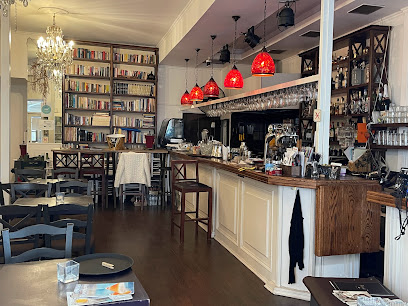
Travel experiences inspired by this city
Explore more travel diariesLocal Phrases
-
- HelloΓεια σας
[Yia sas] - GoodbyeΑντίο
[Adio] - YesΝαι
[Ne] - NoΌχι
[Ohi] - Please/You're welcomeΠαρακαλώ
[Parakalo] - Thank youΕυχαριστώ
[Efharisto] - Excuse me/SorryΣυγνώμη
[Signomi] - How are you?Τι κάνετε;
[Ti kanete?] - Fine. And you?Καλά. Εσείς;
[Kala. Esis?] - Do you speak English?Μιλάτε αγγλικά;
[Milate agglika?] - I don't understandΔεν καταλαβαίνω
[Den katalaveno]
- HelloΓεια σας
-
- I'd like to see the menu, pleaseΘα ήθελα να δω το μενού, παρακαλώ
[Tha ithela na do to menou, parakalo] - I don't eat meatΔεν τρώω κρέας
[Den troo kreas] - Cheers!Υγεία!
[Iyia!] - I would like to pay, pleaseΘα ήθελα να πληρώσω, παρακαλώ
[Tha ithela na plirosso, parakalo]
- I'd like to see the menu, pleaseΘα ήθελα να δω το μενού, παρακαλώ
-
- Help!Βοήθεια!
[Voithia!] - Go away!Φύγε!
[Fiye!] - Call the Police!Καλέστε την αστυνομία!
[Kaleste tin astinomia!] - Call a doctor!Καλέστε γιατρό!
[Kaleste giatro!] - I'm lostΈχω χαθεί
[Eho hathi] - I'm illΕίμαι άρρωστος
[Eimai arrostos]
- Help!Βοήθεια!
-
- I'd like to buy...Θα ήθελα να αγοράσω...
[Tha ithela na agora so...] - I'm just lookingΑπλά κοιτάω
[Apla kitao] - How much is it?Πόσο κοστίζει;
[Poso kostizi?] - That's too expensiveΑυτό είναι πολύ ακριβό
[Afto ine poli akribo] - Can you lower the price?Μπορείτε να μειώσετε την τιμή;
[Borite na miosete tin timi?]
- I'd like to buy...Θα ήθελα να αγοράσω...
-
- What time is it?Τι ώρα είναι;
[Ti ora ine?] - It's one o'clockΕίναι μία ώρα
[Ine mia ora] - Half past (10)Μισή (10)
[Misi (dekka)] - MorningΠρωί
[Proi] - AfternoonΑπόγευμα
[Apoyevma] - EveningΒράδυ
[Vradi] - YesterdayΧθες
[Hthes] - TodayΣήμερα
[Simera] - TomorrowΑύριο
[Avrio] - 1Ένα
[Ena] - 2Δύο
[Dio] - 3Τρία
[Tria] - 4Τέσσερα
[Tessera] - 5Πέντε
[Pente] - 6Έξι
[Exi] - 7Εφτά
[Efta] - 8Οκτώ
[Okto] - 9Εννιά
[Ennia] - 10Δέκα
[Deka]
- What time is it?Τι ώρα είναι;
-
- Where's a/the...?Πού είναι ένα/το...;
[Pou ine ena/to...?] - What's the address?Ποια είναι η διεύθυνση;
[Pia ine i diefthinsi?] - Can you show me (on the map)?Μπορείτε να μου δείξετε (στο χάρτη);
[Borite na mou dixete (sto charti)?] - When's the next (bus)?Πότε είναι το επόμενο (λεωφορείο);
[Pote ine to epomeno (leoforeio)?] - A ticket (to ....)Ένα εισιτήριο (για ....)
[Ena isitirio (ya ....)]
- Where's a/the...?Πού είναι ένα/το...;
History of Athens
-
Athens is often celebrated as the cradle of democracy. In the 5th century BCE, under the leadership of statesmen such as Cleisthenes, Pericles, and Ephialtes, the city developed a system of direct democracy where citizens could participate in decision-making. The Assembly, open to all male citizens, and the Council of 500, were central institutions in this democratic process.
-
The period between 460 BCE and 429 BCE, known as the Golden Age of Pericles, marked a high point in Athenian culture and power. Under Pericles' leadership, Athens experienced a flourishing of arts, philosophy, and architecture. The construction of the Parthenon on the Acropolis during this time is a testament to the city's wealth and artistic achievements.
-
The Peloponnesian War (431-404 BCE) was a protracted and destructive conflict between Athens and its rival, Sparta. The war ended with the defeat of Athens, leading to a temporary decline in its power. Despite this, the city quickly recovered and continued to be a major cultural and intellectual center in the ancient world.
-
After the death of Alexander the Great in 323 BCE, Athens became part of the Hellenistic world. Later, in 146 BCE, it came under Roman control. Despite these changes, Athens remained a hub of learning and culture, attracting scholars and students from across the Roman Empire. The Romans, recognizing the city's cultural significance, built impressive structures like the Odeon of Herodes Atticus and the Roman Agora.
-
During the Byzantine period, Athens experienced a decline but retained its importance as a religious center. The city saw the construction of several beautiful Byzantine churches. In 1458, Athens fell to the Ottoman Empire, marking the beginning of centuries of Ottoman rule. Despite this, the city maintained its cultural heritage, with landmarks like the Parthenon being repurposed as a mosque.
-
In the early 19th century, Athens played a role in the Greek War of Independence against Ottoman rule. The city was eventually liberated in 1833, and in 1834, King Otto of Greece made Athens the capital of the newly independent Greek state. This period saw the beginning of modern Athens' transformation, with neoclassical buildings and public works reshaping the urban landscape.
-
The 20th century brought significant changes to Athens, including rapid urbanization and population growth. The city hosted the first modern Olympic Games in 1896 and again in 2004, showcasing its historical and cultural legacy to the world. Today, Athens is a vibrant metropolis that seamlessly blends its rich ancient heritage with contemporary culture, offering visitors a unique and multifaceted experience.
Athens Essentials
-
Athens is accessible via Eleftherios Venizelos International Airport (ATH), located about 33 kilometers (20 miles) east of the city center. The airport is well connected with major cities worldwide. From the airport, you can take a taxi, metro, bus, or rental car to reach the city center. The metro line 3 (blue line) and express buses (X95) are convenient and budget-friendly options.
-
Athens has an extensive public transportation network including buses, trolleys, trams, and the metro. The metro system is efficient and covers most tourist attractions. Taxis are also widely available and relatively inexpensive compared to other European cities. For short distances, walking is often the best option to explore the city's historic sites. Renting a bike or car is another option, but be prepared for traffic and limited parking spaces.
-
The official currency in Greece is the Euro (EUR). Credit and debit cards are widely accepted in hotels, restaurants, and shops. However, it's advisable to carry some cash, especially when visiting smaller establishments or local markets. ATMs are plentiful throughout Athens, and you can easily withdraw cash using international cards.
-
Athens is generally a safe city for tourists, but like any major city, it's important to stay vigilant. Avoid areas such as Omonia, Exarcheia, and parts of Metaxourgeio at night, as they are known for higher crime rates targeting tourists. Keep an eye on your belongings, especially in crowded places and public transport, to avoid pickpocketing.
-
In case of emergency, dial 112 for immediate assistance. This is the emergency number for police, fire, and medical services. Major hospitals in Athens include Evangelismos Hospital and Attikon University Hospital. Pharmacies are widely available and can provide over-the-counter medications. It is recommended to have travel insurance that covers medical emergencies.
-
Fashion: Do dress modestly when visiting religious sites. Avoid wearing overly casual or revealing clothing in churches and monasteries. Religion: Do respect local customs and traditions. When entering a church, make sure to cover your shoulders and knees. Public Transport: Do validate your ticket before boarding. Don’t eat or drink on public transport. Greetings: Do greet people with a friendly 'Yassou' (hello). A handshake is common for formal introductions. Eating & Drinking: Do try local delicacies and dine at traditional tavernas. Don’t rush your meal; dining is a social event in Greece.
-
To experience Athens like a local, visit the neighborhoods of Koukaki and Pangrati for charming cafes and authentic dining. Spend a Sunday morning at the open-air market in Monastiraki for unique souvenirs. Take a leisurely stroll through the National Garden or hike up to Philopappos Hill for stunning views of the Acropolis. Engage with locals; they are often friendly and eager to share tips about their favorite spots.
Trending Landmark in Athens
-
Acropolis of Athens
-
Parthenon
-
Acropolis Museum
-
Athens National Garden
-
Ancient Agora of Athens
-
National Archaeological Museum
-
Temple of Olympian Zeus
-
Philopappos Hill
-
Monastiraki Square
-
Roman Forum of Athens (Roman Agora)
-
Temple of Hephaestus
-
Metropolitan Church of the Annunciation to the Virgin Mary
-
Theatre of Dionysus
-
Kerameikos Archaeological Site
-
Acropolis
Nearby Cities to Athens
-
Things To Do in Nafplio
-
Things To Do in Delphi
-
Things To Do in Lamia
-
Things To Do in Mykonos
-
Things To Do in Volos
-
Things To Do in Patras
-
Things To Do in Kalamata
-
Things To Do in Olympia
-
Things To Do in Larissa
-
Things To Do in Santorini
-
Things To Do in Pyrgos
-
Things To Do in Zakynthos
-
Things To Do in Meteora
-
Things To Do in Katerini
-
Things To Do in Chania





















